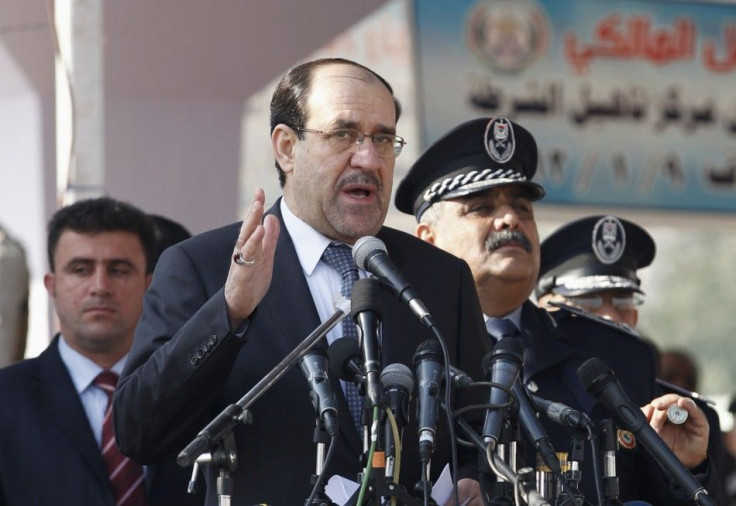Iraq Risks Becoming a Police State, Again: Human Rights Watch

Iraq risks sliding back toward authoritarian rule with Shiite Prime Minister Nuri al-Maliki's security forces cracking down on protests, harassing opponents, and torturing detainees, a U.S.-based human-rights monitor said on Sunday.
In its annual world report, New York-based Human Rights Watch said Iraqi authorities had suppressed freedom of expression and assembly, beaten and detained anti-government protesters, and run a secret prison where suspects are tortured.
The report was issued a month after the last U.S. troops left Iraq nearly nine years after the invasion that ousted Sunni dictator Saddam Hussein and allowed the country's Shiite majority to rise to power in an elected government.
Iraq is quickly slipping back into authoritarianism as its security forces abuse protesters, harass journalists, and torture detainees, Sarah Leah Whitson from Human Rights Watch said in a statement released with the annual report. Despite U.S. government assurances that it helped create a stable democracy, the reality is that it left behind a budding police state.
A government representative did not have any immediate comment on the report.
Early last year, thousands protested across Iraq about a lack of basic services in demonstrations prompted in part by the Arab Spring against authoritarian rulers in the region.
At least 10 people were killed in one day of protests after security forces clamped down on protesters trying to storm government buildings. The most violent clashes were in the northern city of Mosul and the southern city of Basra.
The report also said journalists were often harassed.
It said authorities had raided a press-freedom organization and that journalists reporting on the protests had been arrested and beaten. In semiautonomous Iraqi Kurdistan, the regional government had suppressed local journalists by using death threats and beatings, it said.
Last February, Human Rights Watch said it had uncovered a secret detention facility controlled by Iraqi security forces, where detainees said they had been tortured, the report said. No officials were prosecuted for the abuses, it added.
Maliki, whose Shiite coalition dominates parliament, triggered a political crisis in December when his government ordered the arrest of a Sunni vice president and sought to oust one of his Sunni deputies.
The Shiite leader says the moves were not politically motivated. But some minority Sunnis fear they are increasingly sidelined from political power-sharing and that Maliki is trying to consolidate his own authority.
(Reporting by Patrick Markey)
© Copyright Thomson Reuters 2024. All rights reserved.





















